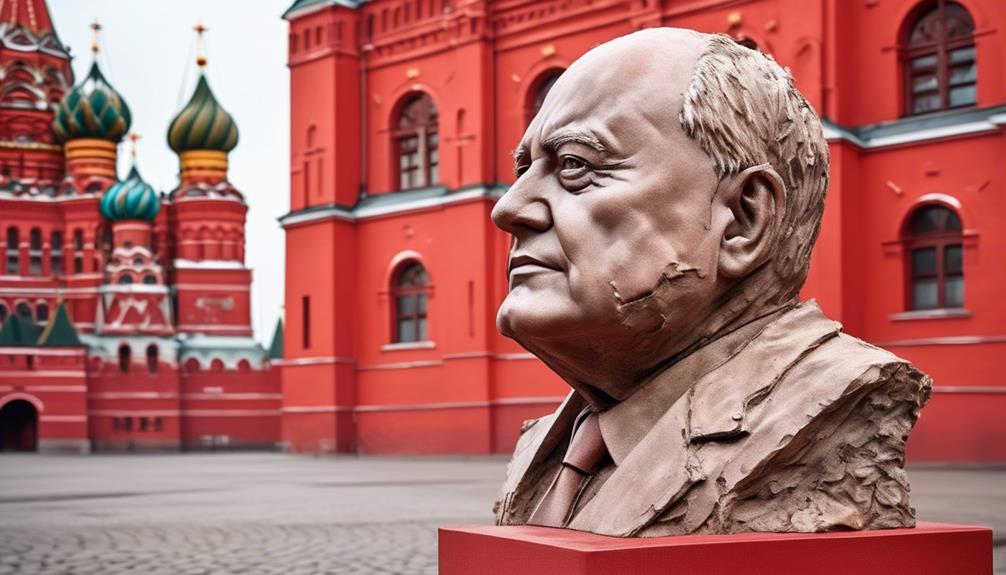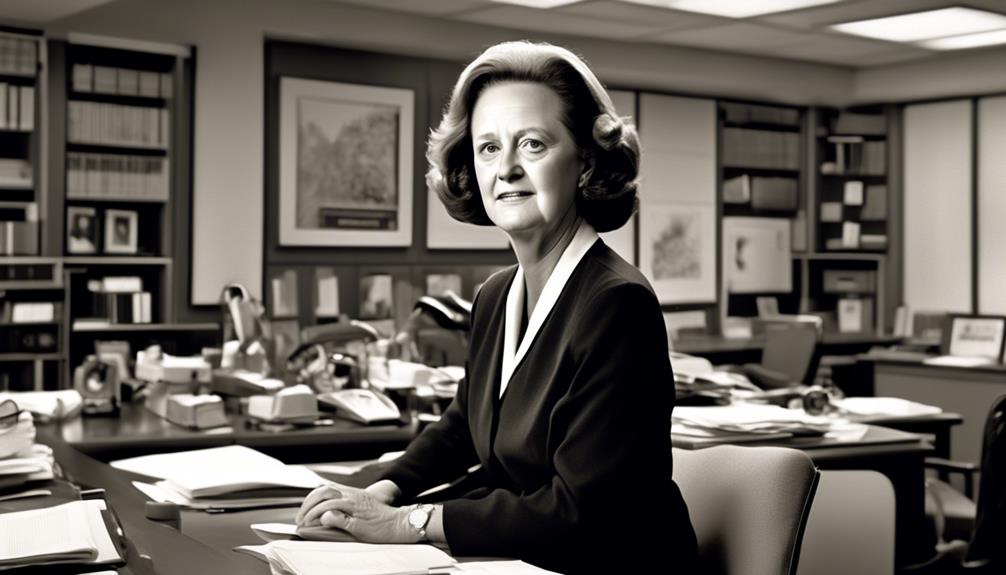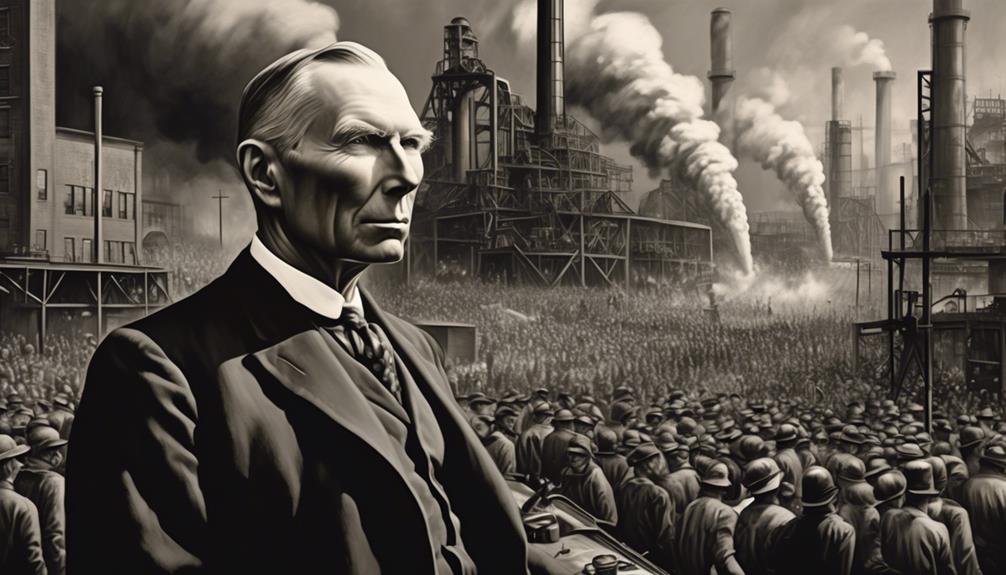In examining key historical personalities, Mikhail Gorbachev, the ex-head of the Soviet Union, stands out for his revolutionary leadership. Gorbachev’s role on the global scene was akin to a major tremor, bringing about a period of unparalleled transformation and transparency.
His policies, such as glasnost and perestroika, aimed to reform and revitalize the Soviet Union, while also fostering dialogue and peaceful coexistence with the West.
Gorbachev's quotes offer invaluable insights into his vision for democracy, nuclear disarmament, and the challenges he faced during his tenure.
Join us as we delve into the wisdom and lessons of this remarkable leader whose legacy continues to shape our world today.
Key Takeaways
- Glasnost and perestroika were Gorbachev's key reforms aimed at fostering trust, cooperation, transparency, revitalizing the economy, and bringing about political and social changes.
- Gorbachev's vision for democracy included democratic reforms promoting transparency, political pluralism, and citizen participation, resulting in greater freedom of speech, press, and assembly.
- The Soviet Union under Gorbachev faced severe economic hardships and opposition from conservative factions and pro-independence movements, but Gorbachev remained committed to reform and addressed concerns through dialogue.
- Gorbachev played a crucial role in ending the Cold War, reducing global tensions, and promoting nuclear disarmament through treaties like the INF, while his policies also contributed to the reunification of Germany and the eventual dissolution of the Soviet Union.
The Power of Glasnost
Glasnost, the policy of openness and transparency introduced by Mikhail Gorbachev in the Soviet Union, revolutionized the political landscape and unleashed a power that had long been suppressed. The power of transparency, as demonstrated through Gorbachev's implementation of glasnost, had a profound impact on international relations.
By allowing for greater transparency within the Soviet Union, Gorbachev aimed to foster trust and cooperation with other nations. The policy of glasnost enabled the Soviet Union to engage in more open dialogue and negotiations with foreign powers, thereby improving diplomatic relations. This newfound transparency allowed for a more accurate understanding of the Soviet Union's intentions, reducing the likelihood of misunderstandings and conflict.
Furthermore, the power of transparency had a ripple effect on other countries as well. Gorbachev's emphasis on openness inspired a global movement towards greater transparency in governance and politics. Many nations began to recognize the importance of transparency in fostering trust and accountability, leading to increased cooperation and collaboration on the international stage.
Perestroika: A Path to Reform
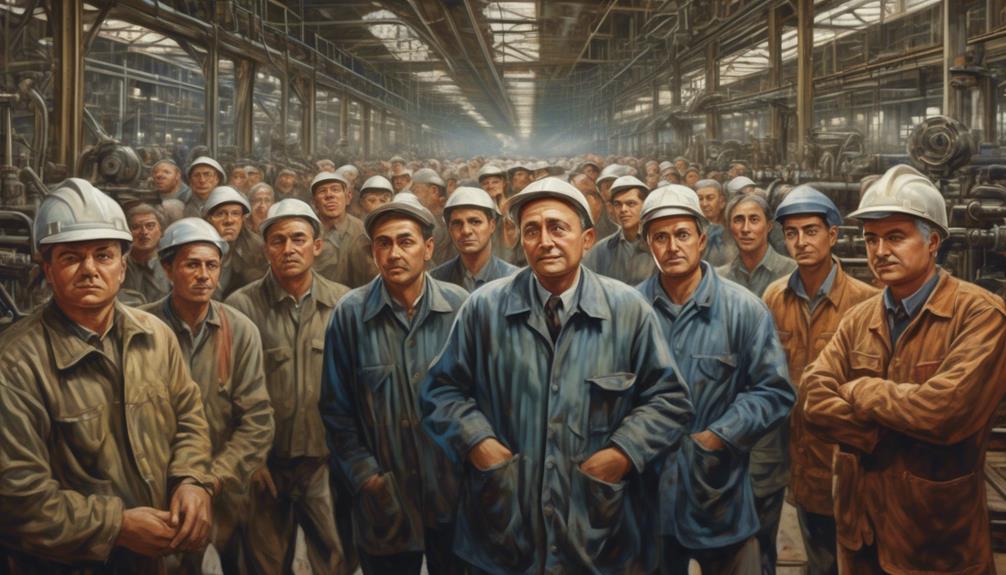
Perestroika, Gorbachev's program of economic and political reform, had a profound impact on the Soviet Union.
Economically, it aimed to revitalize the stagnant Soviet economy through market-oriented reforms, encouraging private enterprise and foreign investment.
Politically, perestroika brought about significant transformations, including the decentralization of power and the introduction of competitive elections.
Additionally, perestroika led to social changes, such as increased freedom of speech, press, and assembly, challenging the previously rigid Soviet system.
Perestroika's Economic Impact
The economic impact of Perestroika, the Soviet Union's reform movement initiated by Mikhail Gorbachev, was significant and far-reaching.
Under Gorbachev's leadership, the country embarked on a series of economic reforms aimed at restructuring the economy. These reforms sought to introduce elements of market economy while maintaining the socialist principles of the Soviet Union.
One of the key aspects of Perestroika was the decentralization of decision-making, allowing enterprises to have more autonomy in their operations. This led to the emergence of private businesses and an increase in foreign investment.
However, the transition to a market economy wasn't smooth, and the reforms faced numerous challenges, including widespread corruption and a lack of infrastructure.
Nevertheless, Perestroika laid the foundation for economic transformation in the Soviet Union, setting the stage for future developments.
Political Transformations Under Perestroika
As the economic reforms of Perestroika aimed to restructure the Soviet Union's economy, they also sparked significant political transformations. Perestroika's political reforms had a profound impact on Soviet politics, fundamentally altering the country's political landscape. Here are two key ways in which perestroika reshaped Soviet politics:
- Increased political openness: Under Gorbachev's leadership, the Soviet government introduced policies that encouraged greater transparency and openness in the political system. This led to the emergence of new political parties and the relaxation of restrictions on freedom of speech and the press.
- Devolution of power: Perestroika sought to decentralize power by granting more autonomy to the republics within the Soviet Union. This shift towards greater regional control challenged the centralized authority of the Communist Party and paved the way for demands for independence from the constituent republics.
Social Changes During Perestroika
During the period of Perestroika, significant social changes occurred in the Soviet Union, transforming various aspects of society. These changes had a profound social impact and brought about cultural changes that shaped the future of the nation. The table below provides a visual representation of the key social and cultural changes that took place during this transformative period.
| Social Impact | Cultural Changes |
|---|---|
| Economic liberalization | Increased individualism |
| Political openness | Greater freedom of speech |
| Glasnost | Cultural diversity |
Economic liberalization under Perestroika allowed for greater private enterprise and individual economic freedom, leading to a shift toward capitalism and consumerism. Political openness and the policy of Glasnost (openness) brought about a greater freedom of speech, allowing for more open discussions and debates. This led to a diversification of cultural expressions and increased cultural diversity within the Soviet Union. The combination of these social changes during Perestroika laid the foundation for a more open and dynamic society in the post-Soviet era.
Leadership Lessons From Gorbachev
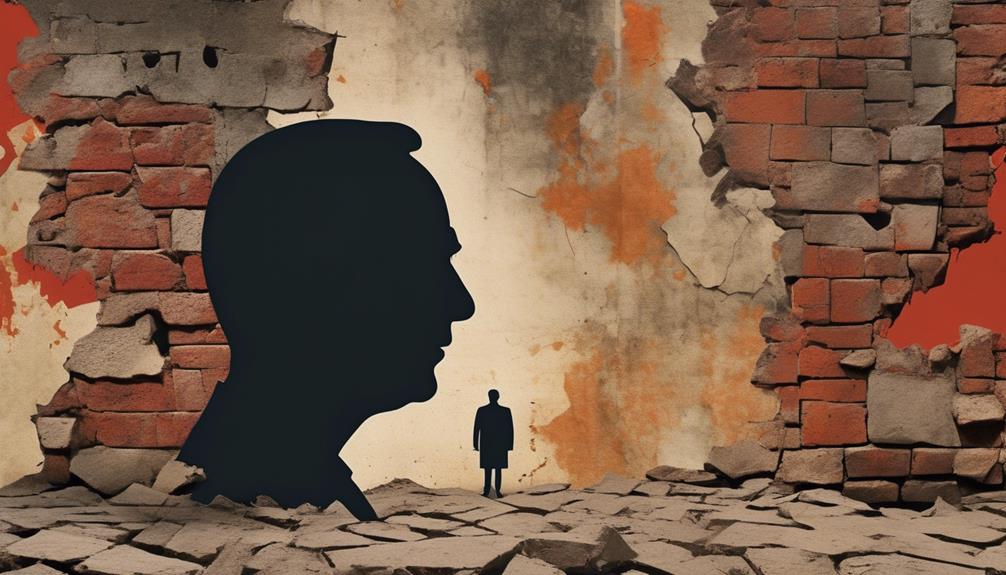
Drawing on his experience as the former Soviet leader, Mikhail Gorbachev offers invaluable leadership lessons that are both insightful and transformative. Gorbachev's leadership qualities serve as a blueprint for effective leadership in any context.
One key lesson from Gorbachev is the importance of adaptability and openness to change. Gorbachev recognized that the Soviet Union was in need of reform and implemented perestroika to address its shortcomings. This demonstrates the significance of being willing to reassess and modify one's approach in order to achieve desired outcomes.
Another lesson from Gorbachev is the value of inclusive decision-making strategies. Gorbachev understood the importance of involving others in the decision-making process to gain diverse perspectives and foster collaboration. This approach not only increases the likelihood of making informed decisions, but also promotes a sense of ownership and commitment among team members.
Gorbachev's Vision for Democracy
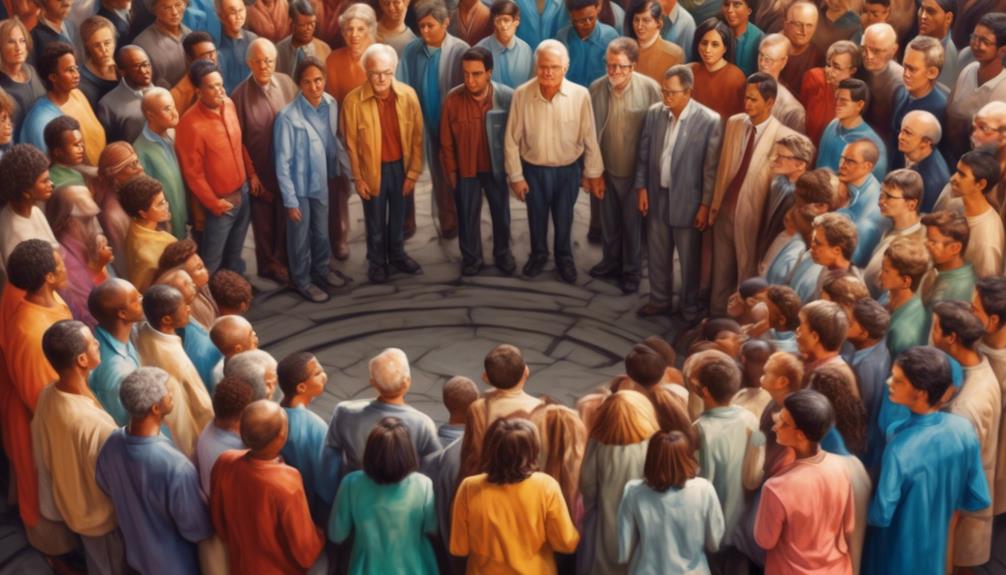
Gorbachev's vision for democracy was evident in the democratic reforms he implemented during his time as the General Secretary of the Communist Party of the Soviet Union. These reforms, such as glasnost (openness) and perestroika (restructuring), aimed to promote transparency, political pluralism, and citizen participation in decision-making processes.
The impact of these reforms on Soviet society was significant, as they allowed for greater freedom of speech, press, and assembly. This newfound openness created an environment where people could openly express their opinions and criticize the government without fear of reprisal. It also allowed for the exposure of previously hidden information and the discussion of sensitive topics that were previously taboo.
Furthermore, these reforms paved the way for the eventual dissolution of the Soviet Union. The increased political pluralism and citizen participation in decision-making processes weakened the centralized power of the Communist Party. This, combined with economic challenges and nationalist movements within the Soviet republics, eventually led to the breakup of the Soviet Union in 1991.
Democratic Reforms Implemented
Mikhail Gorbachev implemented a series of democratic reforms that aimed to transform the Soviet Union into a more open and participatory society. These reforms marked a significant departure from the centralized and authoritarian governance of previous Soviet leaders. Gorbachev's vision for democracy focused on political transformations that would give more power to the people and create a more transparent and accountable government.
Key democratic reforms implemented by Gorbachev included:
- Glasnost: This policy emphasized freedom of speech and press, allowing for open discussions and criticism of the government.
- Perestroika: Gorbachev introduced economic reforms to decentralize the economy and encourage private enterprise, aiming to revitalize the Soviet economy.
These reforms were intended to promote democracy and give the Soviet people a greater voice in the decision-making process. However, they also led to unintended consequences and ultimately contributed to the dissolution of the Soviet Union.
Impact on Soviet Society
The implementation of democratic reforms under Mikhail Gorbachev had a profound impact on Soviet society, reshaping the political landscape and challenging the entrenched power structures of the Soviet Union.
Gorbachev's vision for democracy brought about significant changes in governance, as it introduced concepts such as glasnost (openness) and perestroika (restructuring). These reforms aimed to increase transparency, promote citizen participation, and decentralize decision-making processes.
While these changes were intended to revitalize the Soviet economy and improve living standards, they also led to unintended consequences. The impact on the economy was mixed, with some sectors benefiting from increased market-oriented reforms, while others struggled to adapt.
Additionally, the loosening of state control and the rise of political pluralism created new challenges in maintaining social cohesion and stability.
Nuclear Disarmament and Peace

Nuclear disarmament and the pursuit of peace were central themes in Mikhail Gorbachev's leadership. Gorbachev recognized the destructive power of nuclear weapons and understood the urgent need to promote peace and prevent the catastrophic consequences of a nuclear war. Throughout his tenure as the leader of the Soviet Union, Gorbachev actively advocated for nuclear disarmament and worked towards creating a safer world.
- Gorbachev's efforts towards nuclear disarmament:
- Implemented the Intermediate-Range Nuclear Forces Treaty (INF) in 1987, which eliminated all intermediate-range nuclear missiles from Europe, reducing tensions between the United States and the Soviet Union.
- Proposed the concept of 'General and Complete Disarmament' at the United Nations in 1988, highlighting the need for all nations to eliminate nuclear weapons.
- Gorbachev's commitment to promoting peace:
- Initiated diplomatic negotiations with the United States, resulting in landmark arms control agreements such as the Strategic Arms Reduction Treaty (START) and the Treaty on the Non-Proliferation of Nuclear Weapons (NPT).
- Played a crucial role in ending the Cold War by fostering dialogue and cooperation between the superpowers, leading to a significant reduction in global tensions.
Gorbachev's dedication to nuclear disarmament and promoting peace demonstrated his visionary leadership and commitment to creating a more secure world for future generations. His actions laid the foundation for international arms control agreements and continue to inspire efforts towards a nuclear-free world.
Global Cooperation: Gorbachev's Call
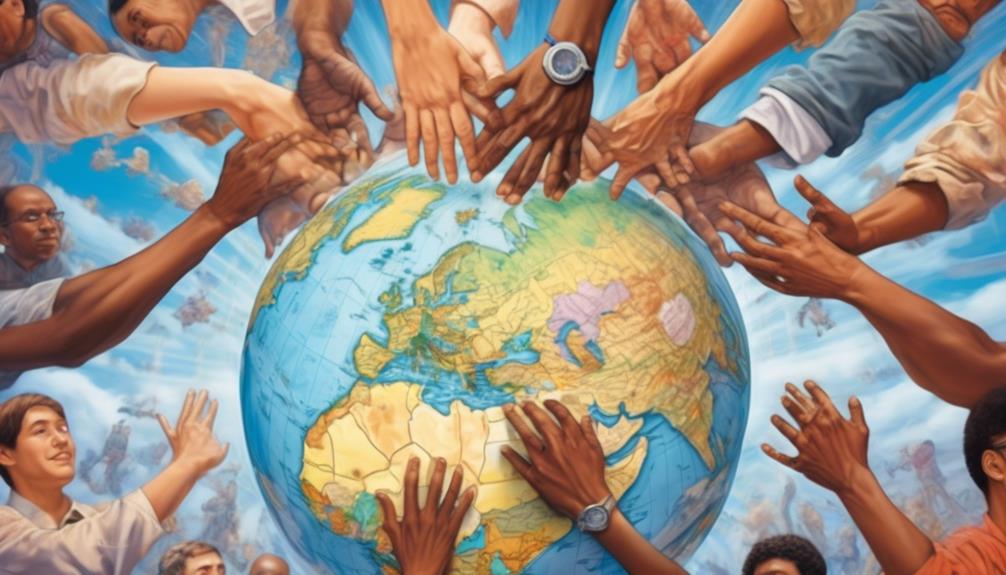
Global cooperation is essential for addressing the challenges of our interconnected world and achieving lasting peace and prosperity. Mikhail Gorbachev, the famous former leader of the Soviet Union, recognized the importance of global cooperation and left behind a powerful legacy advocating for it.
Gorbachev believed that in order to overcome the problems facing humanity, countries must work together, setting aside their differences and embracing a shared responsibility for the future of our planet.
Gorbachev's call for global cooperation was rooted in his understanding of the interconnectedness of our world. He recognized that issues such as climate change, terrorism, and economic inequality can't be solved by one country alone. Instead, they require collaborative efforts, where nations pool their resources, knowledge, and expertise to find joint solutions. Gorbachev believed that by working together, we can create a safer and more prosperous world for all.
Gorbachev's legacy reminds us that global cooperation isn't just a lofty ideal, but a practical necessity. In today's interconnected world, no country can thrive in isolation. Challenges such as the COVID-19 pandemic have underscored the need for international collaboration in areas like public health and scientific research.
Reflections on the End of the Cold War
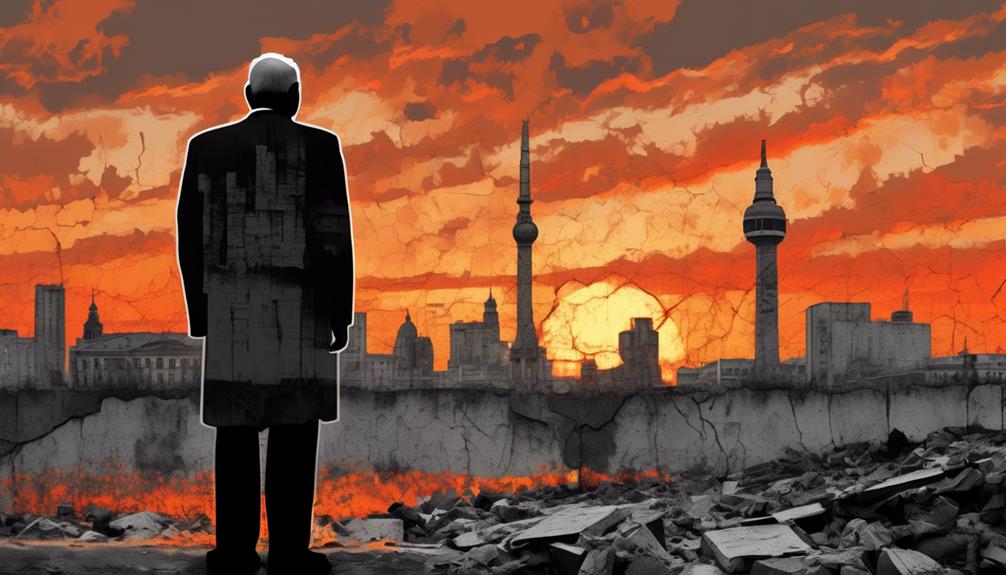
As we shift our focus to 'Reflections on the End of the Cold War', it's important to recognize the significant impact of Mikhail Gorbachev's leadership and his role in reshaping global dynamics. Gorbachev played a crucial role in both the reunification of Germany and the collapse of communism in Eastern Europe.
His policies of glasnost (openness) and perestroika (restructuring) allowed for greater political and economic freedom, leading to a wave of change across the Soviet bloc.
Gorbachev's willingness to engage with Western leaders and his commitment to peaceful negotiations were instrumental in the reunification of Germany. By allowing the peaceful dismantling of the Berlin Wall in 1989, Gorbachev demonstrated a departure from the Soviet Union's traditionally interventionist policies. This shift in approach paved the way for the reunification of East and West Germany, marking a significant turning point in the Cold War.
Furthermore, Gorbachev's influence on the collapse of communism in Eastern Europe can't be overstated. His decision not to intervene militarily in the uprisings in Eastern European countries, such as Poland and Hungary, allowed for peaceful transitions of power and the eventual downfall of communist regimes. Gorbachev's commitment to reform and his recognition of the need for change were essential in bringing about the end of the Cold War.
Challenges Faced by Gorbachev's Leadership
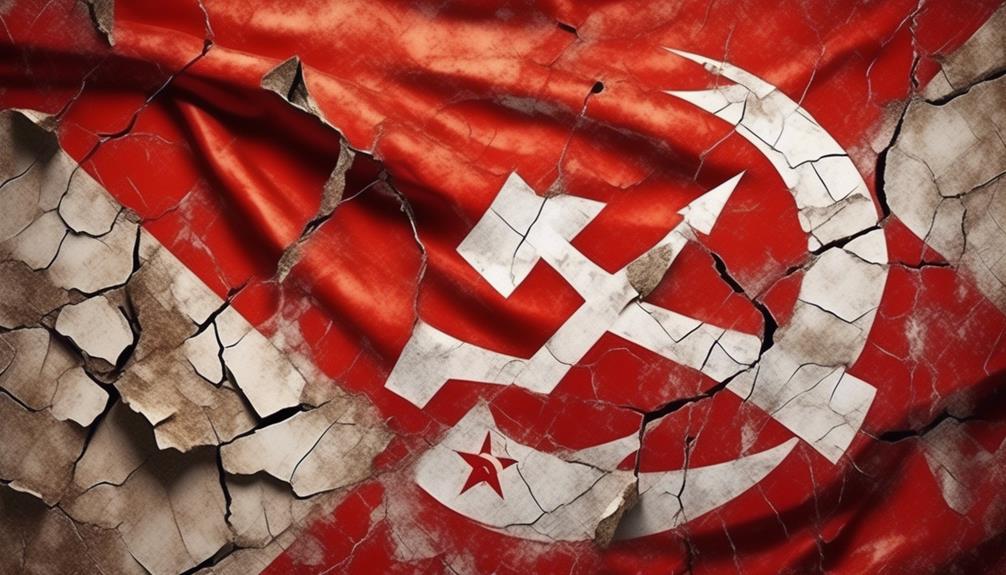
As we explore the challenges faced by Mikhail Gorbachev's leadership, it becomes evident that he encountered significant economic struggles, political resistance, and the need for implementing social reforms.
The economic situation in the Soviet Union was dire, with a stagnant economy and widespread inefficiencies.
Additionally, Gorbachev faced opposition from conservative factions within the Communist Party, as well as from nationalist movements seeking greater autonomy.
To address these challenges, Gorbachev implemented policies such as perestroika (economic restructuring) and glasnost (openness), attempting to modernize the Soviet Union and create a more open society.
Economic Struggles Faced
Throughout his leadership, Mikhail Gorbachev faced numerous economic struggles, which posed significant challenges to his tenure. The Soviet Union under Gorbachev's rule experienced severe economic hardships and financial difficulties. These challenges can be attributed to a combination of factors, including:
- The inefficiency and corruption of the Soviet economic system led to a lack of productivity and innovation, hindering economic growth.
- The burden of military expenditures placed a heavy strain on the Soviet economy, diverting resources away from other sectors and contributing to the growing budget deficit.
- The decline in oil prices, a major source of Soviet revenue, further exacerbated the financial difficulties faced by Gorbachev's leadership.
These economic struggles ultimately contributed to the collapse of the Soviet Union and marked the end of Gorbachev's leadership.
Political Resistance Encountered
Gorbachev's leadership encountered significant political resistance, which presented formidable challenges throughout his tenure. One of the main forms of resistance that Gorbachev faced was political repression. As he sought to introduce political and economic reforms, Gorbachev faced opposition from within the Soviet political establishment. Hardliners within the Communist Party and the military, who were resistant to change, often obstructed Gorbachev's efforts and attempted to undermine his authority.
Additionally, Gorbachev faced opposition movements that emerged as a result of his policies. These movements, such as the pro-independence movements in the Baltic states, posed a significant challenge to Gorbachev's leadership and the unity of the Soviet Union.
Despite these challenges, Gorbachev remained committed to his vision of reform and sought to address the concerns and grievances of the opposition movements through dialogue and negotiation.
Social Reforms Implemented
Despite facing significant political resistance, Gorbachev's leadership also encountered challenges in implementing social reforms. These reforms aimed to modernize the Soviet Union and bring about positive changes in society. However, they had a profound impact on the people and the country as a whole.
Here are some key challenges that Gorbachev faced in implementing social reforms and their impact on society:
- Economic Reforms: Gorbachev introduced policies such as perestroika (restructuring) and glasnost (openness), which aimed to decentralize the economy and promote transparency. However, these reforms led to economic instability and a rise in unemployment, causing hardships for many individuals and families.
- Political Reforms: Gorbachev's push for political openness and democratization faced resistance from conservative elements within the Soviet leadership. While these reforms aimed to give more voice to the people, they also created political divisions and conflicts, impacting social cohesion.
Economic Transformation: Gorbachev's Legacy
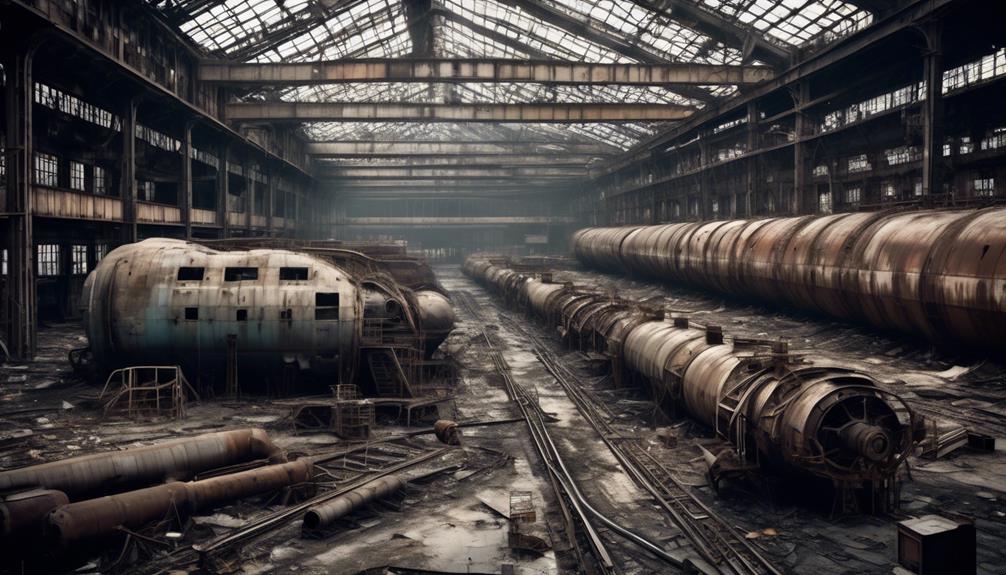
The economic transformation implemented under Mikhail Gorbachev's leadership brought about significant changes to the Soviet Union's economic system. Gorbachev inherited an economy that was plagued with various challenges, including stagnation, inefficiency, and a lack of innovation. His goal was to modernize and revitalize the Soviet economy, while also addressing the social inequalities that existed within the country.
To achieve this, Gorbachev introduced a series of economic reforms, collectively known as perestroika. These reforms aimed to decentralize economic decision-making, encourage market mechanisms, and promote competition. Gorbachev believed that by allowing greater autonomy to enterprises and introducing elements of a market economy, the Soviet Union would be able to overcome its economic challenges and achieve sustainable growth.
However, the implementation of perestroika faced numerous obstacles. The transition from a centrally planned economy to a market-oriented one proved to be a complex and challenging process. The lack of experience and expertise in managing a market economy, coupled with resistance from conservative elements within the Soviet establishment, hindered the progress of economic transformation.
Despite these challenges, Gorbachev's economic reforms did bring about some positive changes. Market-oriented reforms led to the emergence of small private businesses, increased consumer choices, and a more vibrant entrepreneurial spirit. However, the transition was also accompanied by economic instability, rising inflation, and a widening wealth gap.
Gorbachev's Impact on the Soviet Union's Dissolution
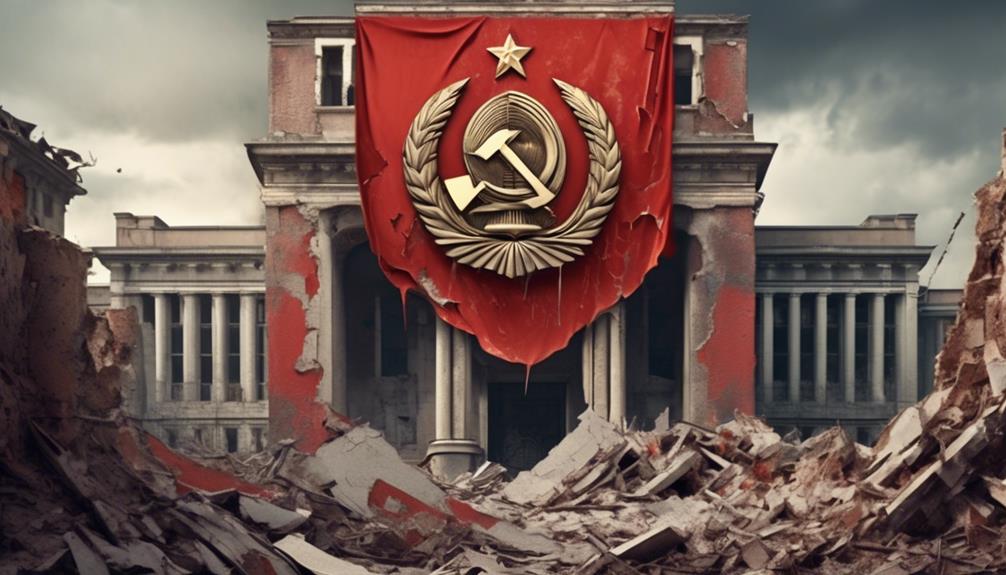
After implementing significant economic reforms, Mikhail Gorbachev's leadership would continue to shape the Soviet Union through his impact on its dissolution. Gorbachev's leadership style played a crucial role in the unraveling of the Soviet Union, as his policies and actions unintentionally contributed to the weakening of the Soviet state.
• Gorbachev's willingness to introduce political and social reforms, such as glasnost (openness) and perestroika (restructuring), allowed for a freer exchange of ideas and information. While intended to revitalize the Soviet system, these reforms inadvertently led to the exposure of the long-suppressed grievances and demands of various Soviet republics, fueling calls for greater autonomy and even independence.
• Gorbachev's pursuit of improved international relations also had unintended consequences for the Soviet Union. His policies of disarmament and cooperation with the West, exemplified by the signing of arms control agreements and the thawing of the Cold War tensions, unintentionally weakened the Soviet Union's position on the global stage. This shift in international dynamics further emboldened nationalist movements within the Soviet republics, as they saw an opportunity to break away from the centralized Soviet control.
Frequently Asked Questions
What Were the Specific Challenges Faced by Gorbachev During His Leadership in the Soviet Union?
Challenges faced by Gorbachev during his leadership in the Soviet Union included the need for economic transformation. The country was facing severe economic stagnation and inefficiency, which required significant reforms.
Gorbachev implemented policies such as perestroika and glasnost to address these challenges and promote openness and restructuring. However, these reforms faced resistance from conservative factions within the party and society.
This resistance led to political instability and ultimately the dissolution of the Soviet Union.
How Did Gorbachev's Policies of Perestroika and Glasnost Contribute to the Economic and Political Transformation of the Soviet Union?
Gorbachev's policies of perestroika and glasnost played a significant role in the economic and political transformation of the Soviet Union.
Economic reforms aimed to modernize and decentralize the economy, encouraging private enterprise and reducing state control. This allowed for more flexibility and innovation, though it also led to economic challenges.
Political openness, through glasnost, brought greater transparency and freedom of expression, challenging the previous authoritarian regime.
These policies set the stage for societal changes and ultimately contributed to the collapse of the Soviet Union.
What Was Gorbachev's Vision for Democracy in the Soviet Union, and How Did He Work Towards Achieving It?
Gorbachev's democratic vision for the Soviet Union was centered on increasing political openness and citizen participation. His approach to achieving democracy involved implementing reforms such as glasnost, which allowed for greater freedom of speech and the press, and perestroika, which aimed to restructure the economy.
Gorbachev also introduced multi-candidate elections and encouraged political pluralism. However, these efforts ultimately led to the disintegration of the Soviet Union, as they unleashed long-suppressed nationalistic sentiments and demands for independence.
How Did Gorbachev's Leadership Style and Strategies Differ From Those of His Predecessors in the Soviet Union?
In comparing Gorbachev's leadership style and strategies to those of his predecessors in the Soviet Union, we can observe significant differences.
Gorbachev's approach was marked by a willingness to embrace reform and engage in dialogue with the West. He implemented policies such as Glasnost and Perestroika, which aimed at opening up the political and economic systems of the Soviet Union.
These departures from the past set him apart from his predecessors and brought about substantial changes in the country's governance and international relations.
What Were the Key Factors That Led to the Dissolution of the Soviet Union, and How Did Gorbachev's Actions Contribute to This Outcome?
Factors such as economic stagnation, ethnic tensions, and political unrest played a significant role in the dissolution of the Soviet Union.
Gorbachev's actions, particularly his policies of glasnost (openness) and perestroika (restructuring), aimed to address these issues but inadvertently accelerated the process.
His reforms led to increased demands for independence from Soviet republics, weakening the central government's control.
Gorbachev's inability to effectively manage these challenges ultimately contributed to the downfall of the Soviet Union.
Conclusion
In conclusion, Mikhail Gorbachev's leadership and vision for reform had a profound impact on the Soviet Union and the world. Through his famous quotes and actions, he emphasized the importance of openness, restructuring, and peace.
His commitment to nuclear disarmament and his role in ending the Cold War will forever be remembered. Despite facing numerous challenges, Gorbachev's legacy lies in his efforts to transform the economy and pave the way for the dissolution of the Soviet Union.
As the saying goes, 'Sometimes the greatest strength lies in embracing change.'
